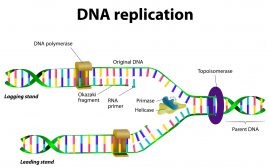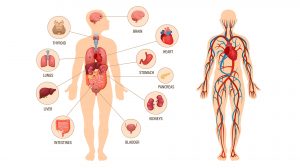Definition
noun
A branch of neuroscience that is concerned with the physiology of the nervous system
Supplement
Neuroscience is the scientific study of the nervous system and is concerned with the structure, development, function, chemistry, pharmacology, and pathology of the nervous system. Modern tools and technologies (e.g. molecular biology, electrophysiology, computational methods, etc.) led to the advancement of research on nervous system. As a result, neuroscience is now comprised of various branches. Neurophysiology is one of these branches.
Neurophysiology is a branch of neuroscience that studies the physiology of the nervous system. It makes use of the physiological techniques in its research, e.g. electrophysiological recordings (using voltage clamp, patch clamp, etc.), calcium imaging, optogenetics, and molecular biology. Some of the topics of interests are electroencephalography, neuroplasticity, chemical synapse, brainstem, electromyography, exocytosis, transcranial magnetic stimulation, long-term potentiation, nerve conduction study, and transcranial direct current stimulation. Electroencephalograpy or EEG is one in which the electrical activity of the brain is recorded from the scalp. Electromyography and nerve conduction research are concerned with assessing the function of the nerves and muscles.
Neurophysiology is also concerned with studying disorders affecting the brain, e.g. meningitis, strokes, dementia, encephalitis, etc., as well as the nerve and the muscle such as myasthenia gravis and motor neurone disease.
Word origin: Greek neuron (“nerve”) +physis (“nature, origin”) + -logia (“knowledge”)
See also:
Dictionary > Neurophysiology
You will also like...

Circulation
The circulatory system is key to the transport of vital biomolecules and nutrients throughout the body. Learn about the ..

Mammalian Ancestors
Mammals are a diverse group of organisms, where most of them develop their offspring within the uterus of the mother. Ov..

DNA Structure & DNA Replication
DNA is a double helix structure comprised of nucleotides. A nucleotide, in turn, is made up of phosphate molecule, deoxy..

Arthropods
The arthropods were assumed to be the first taxon of species to possess jointed limbs and exoskeleton, exhibit more adva..

IQ, Creativity and Learning
Human intelligence provided the means to utilize abstract ideas and implement reasoning. This tutorial takes a further l..

The Human Physiology
Physiology is the study of how living organisms function. Thus, human physiology deals specifically with the physiologic..

